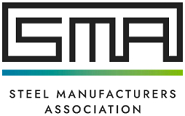Market Data

August 13, 2021
SMA: American Steelmakers Rely on Market-Driven Investment to Do What’s Right
Written by Tim Triplett
By Phil Bell, President, Steel Manufacturers Association
Editor’s note: Phil Bell and SMA are now periodic contributors to Steel Market Update. Look for Phil’s insights on steel and events in Washington in future issues of SMU.
Even as the United States has sought closer cooperation with allies to confront non-market actors like China, many of them, including Canada and the EU, appear to have intensified their own programs of government intervention.
Whatever their stated justifications, the SMA is deeply concerned about the long-term impact that aggressive subsidy programs will have on the market. Instead of creating a more sustainable steel industry, these policies are likely to misallocate resources, distort competition, exacerbate the ongoing excess capacity crisis, and ultimately increase the carbon footprint of global steel production.
A partial catalogue of these recent interventions includes the following:
- After years of providing subsidized loans and other financial support for its unviable integrated steelmaker Ilva, the Italian government agreed in 2019 to acquire a 60% stake and become the controlling shareholder to facilitate a minority investment and keep the company afloat. This effectively nationalized the newly created Acciaierie d’Italia. The former Ilva’s outdated blast furnace operations have been notorious for wreaking environmental havoc on the surrounding community and were originally ordered to be shut by the city government.
- In the last several weeks, the Spanish and German governments announced that they would provide multi-million-dollar investments to build or replace existing blast furnaces.
- The Canadian government recently announced that it would provide C$840 million in funding to support replacement of blast furnaces with electric arc furnaces (“EAFs”). Prime Minister Trudeau has suggested that the transition to EAF production would give Canadian steelmakers “an even greater competitive edge.”
The SMA has long recognized our industry’s role in addressing the climate challenge, and we continue to champion steel industry sustainability. As a result, the American steel industry is among the most efficient and lowest-emission steel industries in the world. Our members have accomplished this on their own through rational, market-driven investment, without asking the government to help them bear the costs of doing what is right.
The facility upgrades listed above are not research and development of cutting edge decarbonization technologies. They will simply implement established production technologies like EAFs, which were pioneered by SMA members and have been available for decades. These have become industry standard in the United States, without state support. While imitation is flattering, in this case it is also market disrupting.
The fact is that certain outdated facilities are both environmentally harmful and economically uncompetitive, and the companies operating them cannot earn sufficient returns to justify additional investment on market terms. When this happens, the proper response is to allow that capacity to exit the market. We support any transition to a more sustainable steel industry, but expansive use of subsidies will be environmentally counterproductive and will aggravate existing distortions in the global market.
Over the last two decades, we have watched governments throw our industry into a state of crisis because they refuse to accept and abide by basic market discipline. In China, for example, the government has long resorted to environmental rationales to justify market-distorting industrial policy interventions.
In overcapacity industries like steel, the government’s “capacity replacement” policies have justified state support for rebuilding uncompetitive, outdated mills with modern technology. Excess capacity has ballooned and, despite overtures to environmental goals in good faith or otherwise, so has the industry’s carbon footprint.
It is, therefore, both troubling and disappointing to see our allies rush to adopt similar strategies, even as the Biden administration looks to them as reliable partners in addressing the challenges posed by non-market players
As America seeks broader cooperation with partners in the EU and Canada, we ask that they pursue commitments that will not act in violation of market principles and exacerbate global overcapacity by increasing subsidies to the steel industry.
Phil Bell is president of the Steel Manufacturers Association (SMA). SMA is the largest steel industry trade association in the United States and is the primary trade association representing American EAF steel producers. Accounting for over 70 percent of domestic steelmaking production, EAF producers are the most sustainable steelmakers in the world. By using an innovative, 21st century production process that is less energy-intensive, domestic steelmakers have up to 75 percent lower carbon emissions than traditional steelmakers. SMA’s 24 producer members have operations in 35 states. For more information check out our website at www.steelnet.org or our Facebook page.







